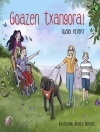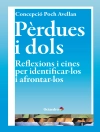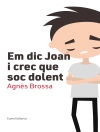This book provides a fascinating vignette of the personal experiences of People with Learning Disabilities for the better (or worse) part of the last century.
What makes the book so interesting is actually meeting some of those involved and seeing their stories in print. It flags up what has been achieved so far, and what still needs to be done.’
– Oral History
‘The editors of this book, written by a range of authors form the UK and overseas, set out to provide the reader with an understanding of the ways in which people with learning disabilities direct their lives through advocacy. Its strength lies in the way in which it puts to the forefront the voices of those who have been, and still might be, excluded from society if it were not for the different forms of resistance they have engaged in.’
– Professional Social Work
‘The accounts are all of acts of resistance and survival, many of them told by the people themselves. This creates another fascinating book which contributes greatly to an appreciation of the role of people with learning difficulties themselves in the historical struggle for better treatment in society.’
– Community Living
‘This book explains how people with learning disabilities have become increasingly able to direct their own lives as fully active members of their communities. It also explains what self-advocacy means for these people and it shows how opportunities and services have changed for them in 10 years.’
– Europe for Us!
‘Heartbreaking, touching and at times inspirational, this book introduces us to the people who have been oppressed, the system that oppressed them and the individuals who stood up to them…Read this if you are involved in supporting people and you will find yourself addressing your practice and attitudes and ultimately, improving the quality of care you deliver.’
– Community Care
‘The accounts are all of acts of resistance and survival, many of them told by the people themselves. This creates another fascinating book which contributes greatly to an appreciation of the role of people with learning difficulties themselves in the historical struggle for better treatment in society.’
– Community Living
Exploring Experiences of Advocacy by People with Learning Disabilities charts the course through which people with learning disabilities have become increasingly able to direct their own lives as fully active members of their communities.
Accounts from the UK, Australia, Canada and Iceland consider both the individual pioneers of self advocacy and local and national groups that have been set up to work actively towards improved services for people with learning disabilities. The book also examines what self-advocacy means for these people and provides an overview of how opportunities and services have changed for them over the decades.
Many of the personal accounts, photographs and songs included in this book will be accessible and encouraging to people with learning disabilities, and they will provide inspiring reading for professionals who work with them, family members and community and government service providers.
İçerik tablosu
1. Introduction, Duncan Mitchell, Manchester Metropolitan University, UK.Part I: Personal Accounts of Advocacy and Resistance. 2. Advocacy as Resistance: Speaking Up as a Way of Fighting Back, Dorothy Atkinson, The Open University, UK, Mabel Cooper and Gloria Ferris, London Consultative Group, UK. 3. Restriction and Resistance: The Experience of Life on a Locked Ward for People with Learning Disabilities, Katherine Owen, The Open University, UK. 4. `I Would Never Walk, Talk, Sit or Stand!’ The Girl on the Tricycle, Marjorie Chappell, independent writer and speaker, with Duncan Mitchell. 5. Two Pioneers of Self-advocacy: Ray Loomis and Tom Houlihan, Paul Williams, University of Reading, UK. 6. `I’ve Had Enough of the Everyday Thing’: Karen Spencer’s Life Story, Karen Spencer, Central England People First, UK, with Jan Walmsley, The Open University, UK. 7. Resilience and Resistance in the Life Histories of Three Women with Learning Difficulties in Iceland, Gudrún Stefánsdóttir, Iceland University of Education, and Rannveig Traustadóttir, University of Iceland, Reykjavik, Iceland. 8. Songs of Resistance, Sue Ledger and Lindy Shufflebotham, tbc. Part II: Speaking for Ourselves: Accounts of Self-advocacy in Action. 9. My Life, My Choices, Paul Savage, Tina Wilkinson and Carl Worth, Speaking Up for Action. 10. `What They Want – Yes, But What We Want – Bugger Us!’, Andy Docherty, Elizabeth Harkness, Malcolm Eardley and Louise Townson, Carlisle People First, UK, and Rohhss Chapman, The Open University, UK. 11. The Life of a Group and a Personal Story: Experiences from Huddersfield People First, Jeremy Hoy, Huddersfield People First, UK, Dries Cautrels and Dan Goodley, University of Sheffield, UK. Part III: Alliances with Others. 12. Fires Burning: Advocacy, Camping and Children with Learning Disabilities in Ontario, 1950-1990, Jessa Chupik, Mc Master University, Ontario, Canada. 13. Resistance in Mencap’s History, Liz Tilley, The Open University, UK. 14. One Man’s Dream that Continues to Inspire Others, Heather Cadbury, Teddington Area Reminiscence Group, UK. 15. Maureen Oswin and the `Forgotten Children’ of the Long-stay Wards: Research as Resistance, Sheena Rolph and Dorothy Atkinson, The Open University, UK. 16. Tales from the Burdens, Peter Carpenter, Bath and North East Somerset Primary Care Trust, UK. 17. Taking a Stand Against the Odds, Kelley Johnson, RMIT University, Melbourne, Australia. Part IV: Alternative Interpretations: Reflections on Resistance. 18. Assistance and Resistance: Making Sense of Inter-war Caring Strategies, Pamela Dale, University of Exeter, UK. 19. Stereotyped Behaviour: Resistance by People with Profound Learning Disabilities, Melanie Nind, University of Southampton, UK. 20. Conclusion, Duncan Mitchell. The Contributors. Subject Index. Author Index.












